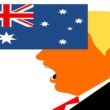In these excerpts from his exclusive interview with the Washington Spectator, Peter Galbraith, a former ambassador to Croatia, adviser to Kurdish political parties, and deputy U.N. envoy to Afghanistan, offered his evaluation of the impact of the U.S. withdrawal from the Iran nuclear deal, shortly after it was announced by President Trump on May 8, 2018.
The original negotiations over the Joint Comprehensive Plan of Action required complete cooperation and coordination among the United States, Britain, France, Germany, and by extension the European Union, as well as China and Russia. Otherwise, you couldn’t have had the sanctions. And it certainly helped that there was a reform-minded leader in Iran.
Iran’s ambitions, in my view, didn’t and don’t extend to actually building a nuclear weapon. It wants to master the technology and to have the capability, but that is not the same as building a bomb. Iran is a country with a significant scientific capability; it had the material—the centrifuges as well as the plutonium—it clearly had the ability to make nuclear weapons.
In return, Iran got the U.N. sanctions lifted, as well as the secondary U.S. sanctions and the European sanctions. There are two reasons why countries want nuclear weapons: one is security, so they won’t be attacked, and the second is respect, to demonstrate that you are a great power. On the security question, having nuclear weapons is a negative for the Iranians, because if the Iranians get these weapons, then the Saudis, the Emiratis, and the Qataris get them, and maybe the Egyptians. So the Iranians’ current advantage, which has to do with their size, would disappear.
Entering the deal, Iran had two motivations: one was the economic benefit of lifting the international sanctions and the other was to end its isolation. It never quite got the economic benefit, because significant U.S. sanctions remained in place. Non-U.S. companies were reluctant to do business with Iran or, to be precise, European banks were reluctant to finance business with Iran for fear they would run afoul of U.S. Treasury regulations. But on the question of ending its isolation, the situation now is that Iran is the country that kept its word, and the United States is the rogue state.
The Israeli security establishment supported the deal, and it still does—because it sees it as delaying Iran’s ability to develop a nuclear weapon, and because Israel has no effective military means to stop an Iranian nuclear program. Prime Minister Netanyahu opposed it rather theatrically, but his opposition had more to do with Israeli domestic politics than the deal itself.
As the deal was being negotiated, it was striking to me how similar the debates were in the United States and Iran. That is to say, the discussion in Iran wasn’t about the United States, it was about hard-liners versus President Rouhani. And in the United States, it wasn’t about Iran, it was about the Republicans against Barack Obama. Part of the well-publicized neocon opposition was simply to be against what Obama and the Democrats tried to do, and part of it reflects an ideological commitment to the Israeli Right.
As I listened to Trump’s speech in early May, announcing the U.S. withdrawal from the agreement, I was struck by how venomous and vindictive it was and how these sentiments were aimed less at Iran and more at Obama and John Kerry. To Trump, Obama is a president who was respected around the world, who actually won his election, who won a majority of the American voters both times, and not on the wings of emails leaked by Russians meddling in the election.
Paradoxically, Trump’s decision to leave the JCPOA strengthens Iran in its negotiations with the Europeans. How is that? Britain, France, and Germany are determined to keep the deal, so now they need to persuade Iran to stay in it. One of the obvious things the Iranians can and probably will demand is for the Europeans to set up a system for financing business with Iran. And if the United States tries to punish the Europeans, I wouldn’t be surprised if the Europeans impose retaliatory sanctions on U.S. companies operating in Europe. Secondary sanctions tend to work nicely when only one side plays the game, but it’s a game two can play.
What does Trump do after withdrawing from the deal? There is no Plan B, there is no alternative. The leverage we had on Iran was that it wasn’t just us—everybody else wanted it to shut down their nuclear program. Now everyone is against us, the others aren’t going to apply sanctions on Iran—more likely Iran is going to emerge with a better deal under the same agreement.
This article was included in print in the June issue of the Washington Spectator.






0 Comments